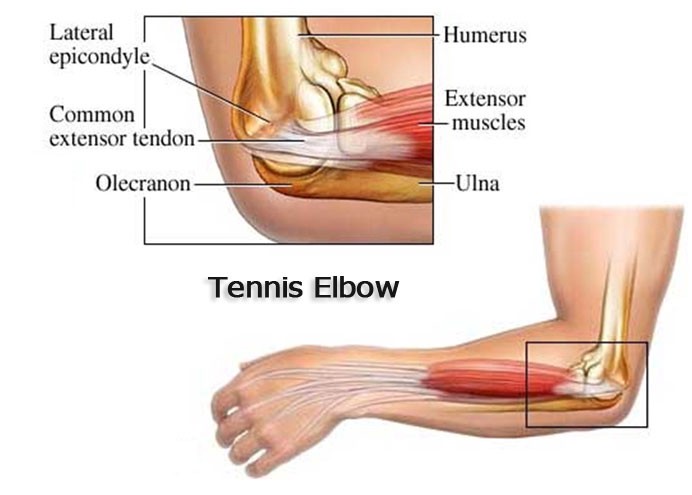Elbow Surgery in Bahamas
Search and Compare the Best Clinics and Doctors at the Lowest Prices for Elbow Surgery in Bahamas

Find the best clinics for Elbow Surgery in Bahamas
No clinics available
Russian Federation offers the best prices Worldwide
Price: $ 553

- Home
- Bahamas
WHY US?
At Medijump, we're making medical easy. You can search, compare, discuss, and book your medical all in one place. We open the door to the best medical providers worldwide, saving you time and energy along the way, and it's all for FREE, no hidden fees, and no price markups guaranteed. So what are you waiting for?

Free

Best Price

Widest Selection

Risk-Free
What you need to know about Elbow Surgery in Bahamas

Elbow surgery is a surgical procedure to treat an injured elbow, such as damage in the tendons that connect your muscles to the elbow bone. The procedure is required when other treatment options cannot improve the symptoms and affect your ability to perform a simple task, such as lifting a cup.
What Does the Procedure Involve?
There are two types of elbow surgery: open surgery and arthroscopic surgery, both can be performed under general or local anesthetic. In open surgery, your surgeon makes a single incision above the bone on your elbow side and removes the damaged part of the tendon. In arthroscopic surgery, your surgeon creates small incisions in the skin over the elbow to insert tiny instruments and a camera, then, the damaged parts of your tendon are removed using these tiny instruments. Depending on your condition, elbow surgery may also involve replacing your elbow joint.
How Long Should I Stay in Bahamas for a Elbow Surgery Procedure?
Elbow surgery is usually performed as an outpatient procedure, which means you can leave the hospital on the same day. Nevertheless, you will need to stay in Bahamas for 5 to 7 days for initial recovery, follow-up hospital checkups, and removal of stitches.
What's the Recovery Time for Elbow Surgery Procedures in Bahamas?
The total recovery time before you are allowed to exercise or play sports can be as long as four to six months. However, you should be able to return to work and some light activities within six to twelve weeks.
What sort of Aftercare is Required for Elbow Surgery Procedures in Bahamas?
There are usually no dietary restrictions, but you should eat a healthy and balanced diet. You will need to do strengthening exercises, but make sure to do it with a physical therapist that will show you the right exercises to strengthen your elbow. After you are fully recovered, always be careful not to injure your elbow again and your doctor may recommend exercises to strengthen your shoulder so you can take the pressure off the elbow.
What's the Success Rate of Elbow Surgery Procedures in Bahamas?
Approximately 80% to 90% of people who have elbow surgery said that their pain was reduced and their movement improved. Elbow surgery has possible side effects and risks, including infection, damage to nerves in the elbow, damage to blood vessels in the elbow, reduced strength, reduced flexibility, severe pain, swelling that does not go away, redness, numbness, fever, and tingling sensations in your hands or fingers.
Are there Alternatives to Elbow Surgery Procedures in Bahamas?
If you do not want to undergo surgery, you can usually treat it with pain relievers and rest. Your doctor may also recommend an elbow brace and a few adjustments to your daily activities. However, for severe cases, you may want to consider elbow surgery.
What Should You Expect Before and After the Procedure
Injury in your elbow can be very painful and limit your movements. After elbow surgery, you will be able to move your elbow easily and all pain will be reduced. As a result, you can continue to enjoy sports and other activities.
Whilst the information presented here has been accurately sourced and verified by a medical professional for its accuracy, it is still advised to consult with your doctor before pursuing a medical treatment at one of the listed medical providers
No Time?
Tell us what you're looking for and we'll reachout to the top clinics all at once
Enquire Now

Popular Procedures in Bahamas
Prices Start From $964

Prices Start From $218

Prices Start From $218

Prices Start From $2,050

Recommended Medical Centers in Bahamas for procedures similar to Elbow Surgery

- Interpreter services
- Translation service
- Religious facilities
- Medical records transfer
- Medical travel insurance
- Health insurance coordination
- TV in the room
- Safe in the room
- Phone in the room
- Private rooms for patients available
Elbow Surgery in and around Bahamas
The Bahamas is an archipelago and country on the northwestern edge of the West Indies. Having more than 700 beautiful, palm-fringed islands, this country is known for its stunning beaches, coral reefs, crystal clear waters, a myriad of bird species, and historic towns. With everything that it has to offer, it is easy to see why the Bahamas welcomes millions of visitors each year. Besides honeymooners, divers, and beach-goers, the Bahamas is also popular among medical tourists thanks to its exceptionally high-quality services. The country’s booming medical tourism industry is driven by its highly-skilled medical professionals and state-of-the-art equipment, combined with cost-effective medical care and the opportunity to recuperate in beautiful surroundings. Cosmetic and plastic surgeries, total knee replacements, and cardiac surgeries are some of the most popular procedures in the Bahamas.
Popular Parts of the Bahamas
Nassau, the capital of the Bahamas, is one of the chief pleasure resorts in the world. Known as the Bahamas’ crown jewel, it boasts a vibrant culture, breathtaking natural landscape, and rich history. Its signature attraction is the beaches, and the most popular is Cable Beach. With striking white sands and blue waters, this peaceful and beautiful beach is the perfect place to relax and sunbathe. Freeport is also a famous destination in the Bahamas. With its diving sites and world-class restaurants, there are many things to see and do in this city. The main draw of Freeport is its beaches. Some of the most popular are Taino and Fortune Beach.
Weather and Climate in the Bahamas
The Bahamas experiences a tropical climate and the average temperatures will stay the same all year round, between 24°C - 29°C. There are generally two seasons in the country: dry and wet. The dry season, from November to June, is mostly sunny and pleasant. However, it tends to be very crowded during this season, especially from mid-December to mid-April. The wet season spans from July to November. This season sees an increase in rainfall, but there are still many sunny days. The Bahamas also has a hurricane season, which lasts from June to November.
Getting around in the Bahamas
The largest international gateway to the Bahamas is Lynden Pindling International Airport, which is located near the capital city of Nassau, in western New Providence Island. It serves flights to numerous major cities in the Americas and Europe, including New York, Atlanta, and London. The easiest and quickest way to get around is by plane, especially to travel from one island to another. In Nassau and Freeport, the main transport option is the jitneys (private minibusses). In Out Islands, no public transport is available. The best way to get around inside the islands is by taxis or rental cars. However, taxis are often quicker and easier than driving on your own. Ferries and water taxis are all available.
Tourist Visas in the Bahamas
Citizens of 120 countries, including all EU countries, Australia, Canada, China, the US, and the UK, can visit and stay in the Bahamas for up to 3 months without a visa unless stated otherwise. Nationals not listed in the visa-exempt agreement need to obtain a visa to be able to visit the Bahamas.
Additional Information
- Local Currency: The Bahamian dollar (BSD) is the official currency, which is equivalent in value to the US dollar. Bahamian dollar and US dollars are accepted interchangeably in the country.
- Money & Payments: ATMs are widely available on the major islands and can usually be found in airport terminals and at banks. Credit cards are widely accepted. Tipping is expected, usually around 15% for taxi drivers and waiters, and $1-$3 for bag porters and hotel maids.
- Local Language: English is the official language in the Bahamas.
- Local Culture and Religion: Bahamians are deeply religious and the biggest religion is Christianity. However, the constitution guarantees freedom of expression, and other religions are freely practiced.
- Public holidays: Some of the most important holidays in the Bahamas are Whit Monday, National Heroes Day, Randol Fawkes Labour Day, Emancipation Day, Independence Day, Christmas Day, Boxing Day, New Year’s Day, and Majority Rule Day.
Popular Searches
- Plastic Surgery in Thailand
- Dental Implants in Thailand
- Hair Transplant in Thailand
- Breast Augmentation Thailand
- Gastric Sleeve in Thailand
- Gender Reassignment Surgery in Thailand
- Laser Hair Removal in Bangkok
- Botox in Bangkok
- Dermatology in Bangkok
- Breast Augmentation in Bangkok
- Coolsculpting in Bangkok
- Veneers in Turkey
- Hair Transplant in Turkey
- Rhinoplasty in Turkey
- Stem Cell Therapy in Mexico
- Rhinoplasty in Mexico
- Liposuction in Mexico
- Coolsculpting in Tijuana
- Rhinoplasty in Korea
- Scar Removal in Korea
- Gastric Sleeve in Turkey
- Bone Marrow Transplant in India
- Invisalign in Malaysia
- Plastic Surgery in the Dominican Republic
- Tummy Tuck in the Dominican Republic
- Plastic and Cosmetic Surgery in Poland
- Rhinoplasty in Poland
- Hair Implant in Poland
- Dental Implants in Poland
- IVF in Turkey